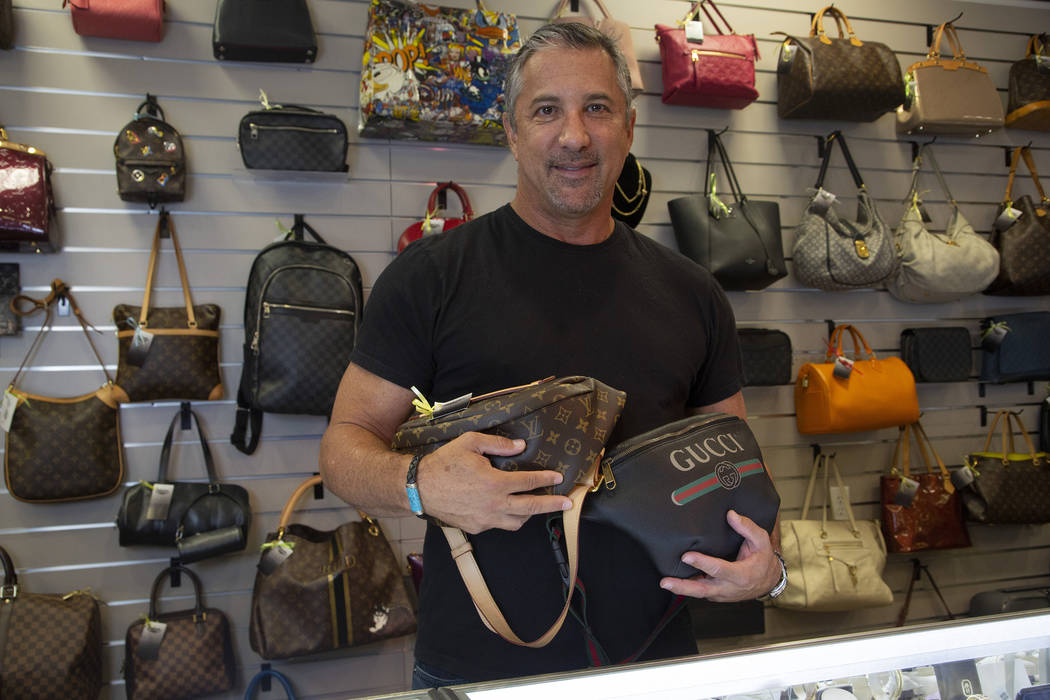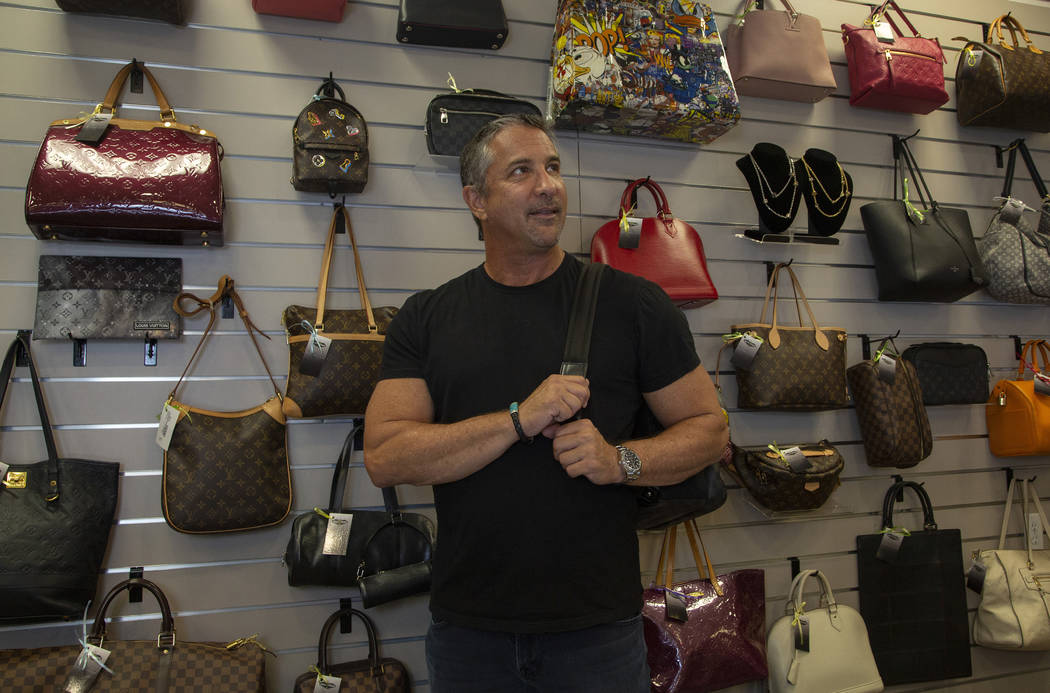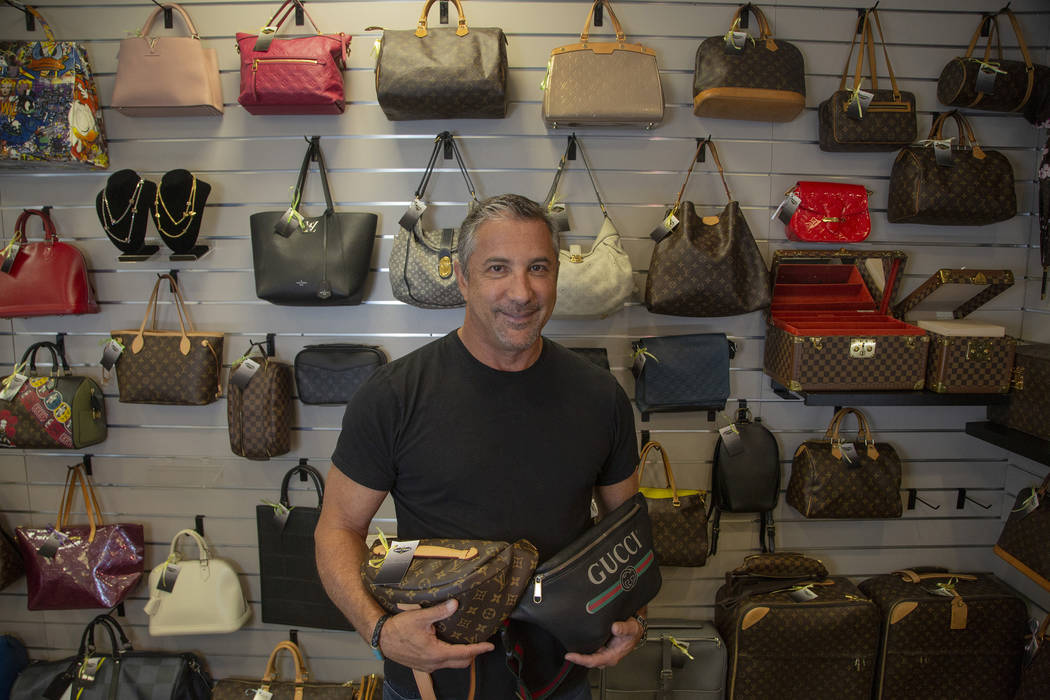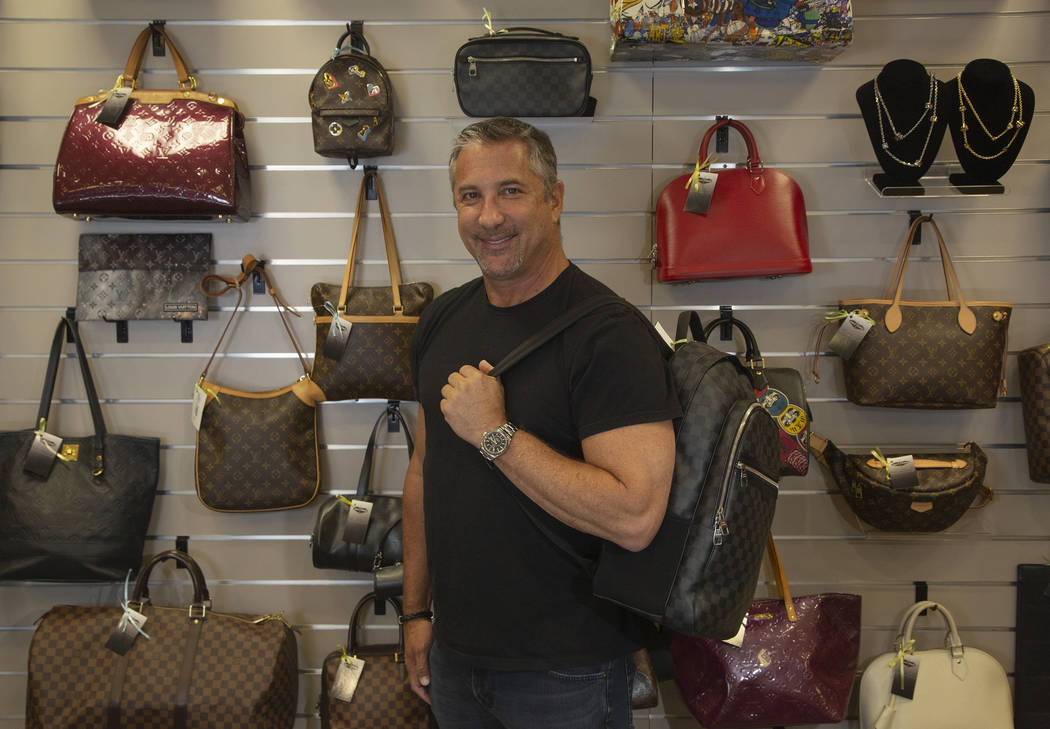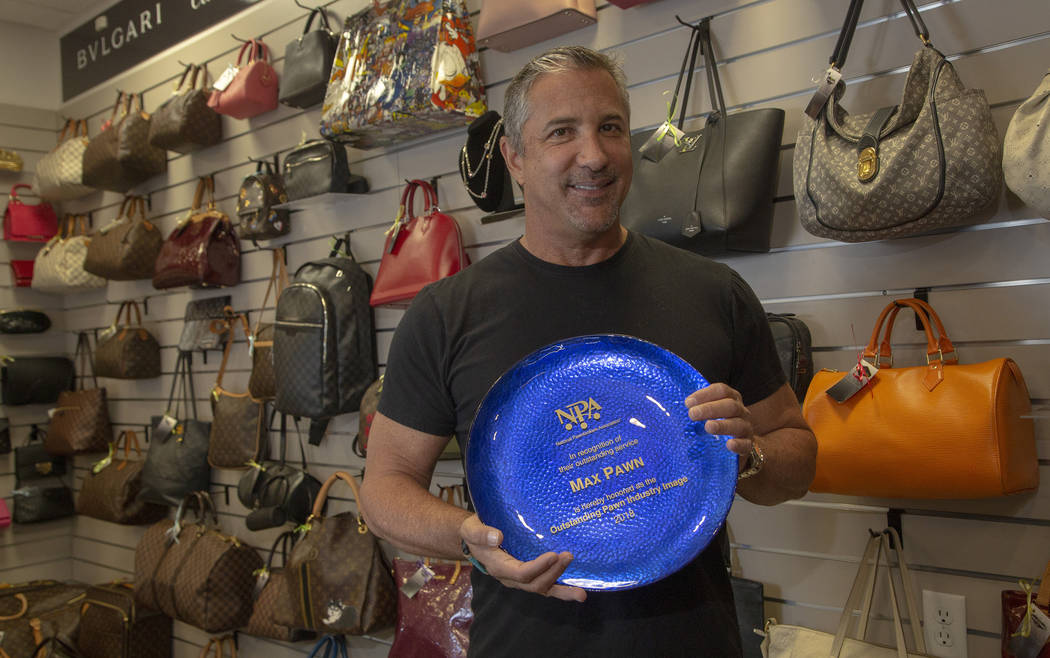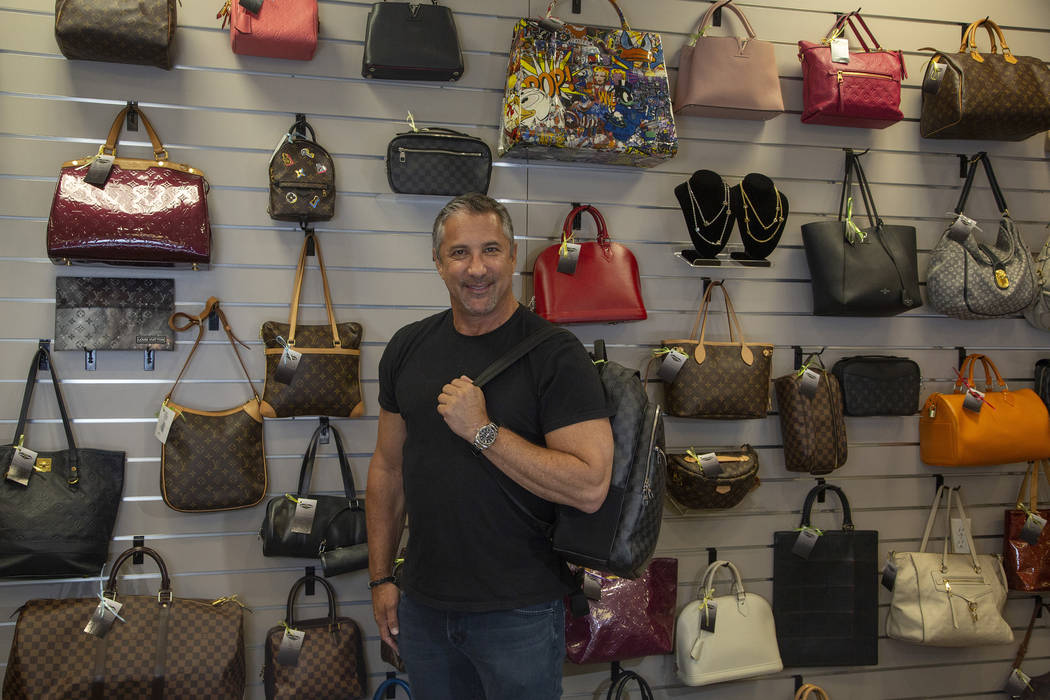Owner of Las Vegas’ Max Pawn talks about his industry
Vegas Voices is a weekly series highlighting notable Las Vegans.
It all started with a single handbag.
Now dozens of the luxe fashion accessories — “Sex in the City”-approved totes by designers such as Fendi, Cartier and Gucci that retail for more than your mortgage payment — line the walls.
But first there was just one.
“I was looking at assets that held value,” Max Pawn owner Michael Mack recalls as he leads a tour of his store on a recent weekday. “This lady came in with a Chanel bag she paid $4,000 for. We gave her $1,000. It held great resale value.”
With that, Max Pawn had a game changer.
“The handbag business brought customers that normally wouldn’t come into a pawn shop,” Mack says. “Our jewelry business has jumped because of our handbag business.”
His family has been in the business for generations — Mack shares an anecdote about how his great-grandfather sold Jimi Hendrix his first guitar at his shop in Seattle.
He has owned and operated stores from here to Texas, having also launched Super Pawn with his brother, selling his stake in the business 11 years ago.
Mack, who served on the Las Vegas City Council from 1999 to 2005, opened Max Pawn in November 2009 and has earned a reputation for high-end wares and famous customers.
Yeah, there’s still a rack of 99-cent DVDs to the right of the door, but there are also glass cases full of Rolex watches and diamond rings, a growing collection of sought-after sneakers and the occasional Rolls-Royce sale to boxer Floyd Mayweather.
As Mack has continued to build his business, he’s developed a broad philanthropic resume as well, working to benefit Noah’s House, Make-a-Wish Southern Nevada and homeless youth, among others.
Retreating to his office, which teems with autographed Golden Knights memorabilia, framed photos of political powerhouses and more, Mack breaks down his industry.
Review-Journal: You’re a fourth-generation pawnbroker. Is this always something you knew you were going to do?
Mack: No. My parents promoted us to go to college and maybe do something different. I went to USC, worked for IBM my junior and senior years. My junior year, it was the Olympics at USC, so I got to work on the Olympic project with IBM, which was cool. I was selling Selectric IBM typewriters, then after the Olympics, they came out with something called the PC. I sold the very first PC. The first one was the AT. The AT was $7,500, had like 12 RAM of memory, DOS-based, no operating system. Then the XT was the big one, $12,500. And we could not hang onto them. They were like the greatest thing. I was ready to graduate, my brother had already entered the business, and my dad made me an offer. It was the best thing that ever happened.
You’ve worked in the industry elsewhere. Is Vegas as a market appreciably different than other cities?
Totally. It’s the best pawn market in the world. Because cash is king here. It’s also evolved and changed. Before 2008, it was a very lower-middle-class business. After 2008, there were people coming to me that, their kids went to The Meadows School, they needed to pay their $12,000 tuition, they didn’t have it. But they had a Ferrari. And I took the Ferrari. I either sold it for them or they got a loan on it and they got it back. We have every walk of life here.
You’ve seemed cognizant of changing the perceptions of how pawn shops are viewed.
It really changed 20-plus years ago when we had Super Pawn. We took stores outside of (bad) areas where pawn shops were normally on skid rows and put them in neighborhoods where people wanted them. We had them in Summerlin. We had them in Henderson, in Green Valley. We had them everywhere. We made these stores more female friendly. It wasn’t like a smelly tool store that smells like gasoline or lawnmowers when you go in there.
When you think of some of the most memorable things that people have brought in over the years, what comes to mind?
Let me show you something. (Mack retrieves a vintage football helmet from the ’50s or so, back when a helmet is really only a helmet in name only.) Ever heard of (Pro Football Hall of Fame running back) Doak Walker? They have the Doak Walker Award. This is Doak Walker’s helmet. I’ve squeezed that on my head. I’m just thinking, ‘What kind of brain damage did they have back then’?
(He then grabs a wooden cylinder adorned with Native American art.)
This thing right here is really, really old, Native American. You can see it was all handmade. When they were traveling from camp to camp, they’d take the hot embers and they would put them in here. They would have the embers for the next fire.
The industry is always evolving, it seems. What’s next?
I’m always looking. Like sneakers. Sneakers is my new handbag. Sneakers is the millennial toy. That’s all they want. I jokingly say, ‘They don’t do China, they don’t do crystal, they don’t do art, they don’t do this, they don’t do that.’ You know what they do? They do apps on their phone. And if they know apps, they can buy sneakers. So we’re going to have sneakers in here. It’ll be a little different. We’re going to be the guy where you can buy the pre-owned sneaker. It’s maybe the $300 sneaker that you can buy for $150 now. It’s all about the draw. If you have anything that you think might be the next draw, I’m listening.”
Contact Jason Bracelin at jbracelin@reviewjournal.com or 702-383-0476. Follow @JasonBracelin on Twitter.
Getting to know: Michael Mack
Favorite vacation destination
I just got back from Asia. I love Asia. I was in Shanghai, Jakarta, Singapore, Vietnam, Thailand and South Korea. My son graduated. I take each of my kids, at least once a year, on a dad-son trip. We travel all over the place.
Hobbies
I love to work out, try to stay young, eat healthy. I played golf years ago, and I just joined a country club so hopefully I'll play again. I love being out there, love the outdoors, hiking, fishing.
Favorite indulgence
I'm trying to watch my waistline, but I'm a dark chocolate guy.
Pets
We have a Frenchie (French bulldog) that I share with my manager here. His name is Winston. He's the best. He's here usually Monday to Friday before 1 p.m.
Favorite movie
"A Star Is Born" was awesome.
Where would you live if not in Vegas
Probably somewhere on the beach.




